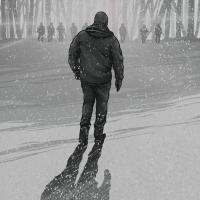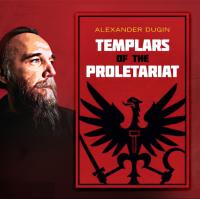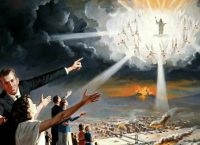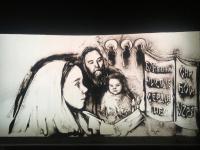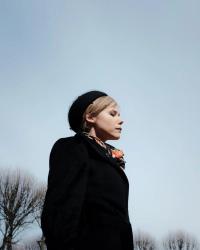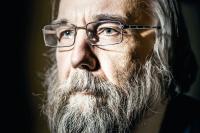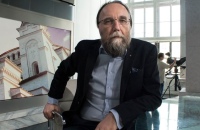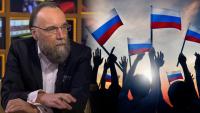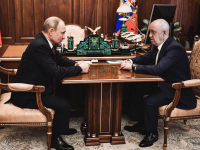Apotheosis of the Warrior Eugene
A heptapolar world
What happened at the XV BRICS Summit in Johannesburg is truly historic. Even if the President of Russia, the founder of BRICS, did not take part in it, it is still a turning point in modern history. The world order is changing before our eyes. Let us parrot the meaning of the ongoing tectonic changes.
Crisis of Global Liberalism
Alexander Dugin, one of the world’s most famous political philosophers, joins us in a new episode of our New Rules podcast
Crisis of Global Liberalism
Ernst Jünger and the ‘Worker’
Eschatologies of the multipolar world
A Conversation With A Myth - Aleksandr Dugin
The creation of the empire and the speed of war
On the Dasha of 'Tradition', the tears of our resurrection
Alexander Dugin in conversation with Edmund Wilson: The Mission of Civilization
Alexander Dugin in conversation with Edmund Wilson: The Mission of Civilization
A sovereign economy does not need foreign trade
My (alas deceased) friend, great businessman and patriot, Mikhail Yuriev, once asked me a question: why is the ideal a zero foreign trade balance, i.e. the situation where the country sells as much as it buys (i.e. the volume of imports equals the volume of exports)? It turns out, he concluded, that the ideal would be to reduce foreign trade to zero, a very good point on which he built his curious book Fortress Russia. The main idea is: Russia should close itself off from the world and build an autonomous society based only on our traditional Russian values. If you want a perfect foreign trade balance, do it. That is a very productive way of thinking.
The Lady of Tradition
I thank you all from my heart all those who commemorate the tragic day 20 august 2022 when my daughter Darya was brutally killed by Ukrainian terrorist woman. I thank all my friends and friends of Darya for Your condolences and sharing my deep sorrow. I also thank you for publishing the different books written by Dasha or dedicated to her memory.
Speech on the Occasion of One Year since Dasha
Dasha friend and sister
Existential politics
In the history of 20th century philosophy and political science, everything associated with existentialism is opposed to politics. It is the existentialism of Sartre, Camus, leftist existentialism, which serves as a basis for criticising political structures and political systems, because it is a remote response to Heidegger.
The Principles of Victory and Justice
Fourth Political Theory in Africa - Introduction speech with Alexander Dugin
Greeting of African russophiles: Russia-Africa Forum
Dugin: Russia should contemplate hitting Ukraine with nuclear weapons
"Our America": Strategic Battleground for the Final Defeat of the Thalassocratic Hegemon
The West has moved on to Operation Punishment
Until recently, it was said at all levels of government that Russia is part of Western civilisation, a European country, and indeed it is, it is a child of the West, it is obvious that the West is older, more central and more responsible to its own civilisation, or one can even say that the West is a father, a parent. According to the formula 'Russia is a European country', the West taught Russia what it could do and what it could not do. Yes, the baby was huge and formidable but, from the West's point of view, wild, stupid and probably sick.

